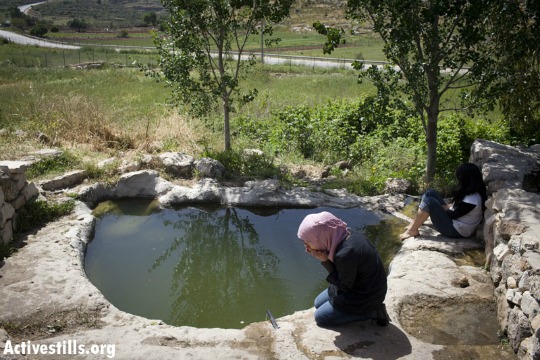If President Obama plans on trying to kickstart the Israeli-Palestinian peace process during his visit this week, he should reframe the process. Tackling the toughest issues first, such as Jerusalem, has proven to only prolong the stalemate. Why not start with water?
By Oded Eran and Gidon Bromberg
The Israeli-Palestinian political process has been stalled for too long. It could soon be replaced by a third Intifada or a Palestinian version of the Arab Spring. If the renewed Obama Administration wants to try and avoid this possible turn of events, it has to change the paradigm that has guided all previous efforts to reach a solution to the Israeli-Palestinian conflict since the 1993 Oslo Accords. All of these efforts were predicated on the premise that a simultaneous solution to the three core issues — Jerusalem, borders and refugees — is attainable. It is time to change the paradigm.
Israelis remain divided between those who wish for a two state solution and those who want just one state all under Israeli control. Palestinians remain divided geographically and politically, between Gaza/Hamas and West Bank/Fatah. The longer it takes to resume the negotiations, the more difficult it will be to attain the two-state solution. Tackling the toughest issues first, such as Jerusalem, have proven to only prolong the stalemate.
We suggest renewing negotiations between the two sides on key issues that present immediate benefits for both sides, if a solution is found. Water is an excellent case in point. Given the dire Palestinian need for more water; Israel’s increased water supplies due to large scale desalination; and a joint need to deal with untreated sewage; advancing water as a first priority makes economic, ecological, and not least importantly, political sense. An agreement on water would concretely improve the current living conditions of both peoples. For Palestinians increasing fresh water availability will improve living conditions in every home and for Israelis water cooperation would remove pollutants that originate in the West Bank from rivers and streams that flow through our main cities.
Politically, the two sides can proceed with minimal political cost. The Palestinian President, Abu Mazen could present an achievement in the form of additional much needed water for the Palestinian people. The Israeli Prime Minister Netanyahu could show progress in dealing with the conflict. We well understand however that increasing water availability to Palestinian cities and villages and removing sewage from Israeli streams will not suffice. The agreement struck would need to be not only a ‘Final Accord on Water’ and not another interim process, building much needed trust, but it must be time linked to negotiations on the tougher issues. This is where the U.S. will be most needed: creating the roadmap and the timeline linking agreements such as the one on water to the end result — two states, Israel and Palestine. We call on President Obama when next month here in the Middle East to ‘walk on water’ and create a real chance for serious peace negotiations beyond just the photo-op.
Oded Eran is a Senior Researcher at the Institute for National Security Studies, Tel Aviv. Gidon Bromberg is the Israeli Director at EcoPeace/ Friends of the Earth Middle East (FoEME) and Chair of the Alliance for Middle East Peace (ALLMEP). The views expressed are those of the authors; this post originally appeared on The Huffington Post.
Join the discussion here:

